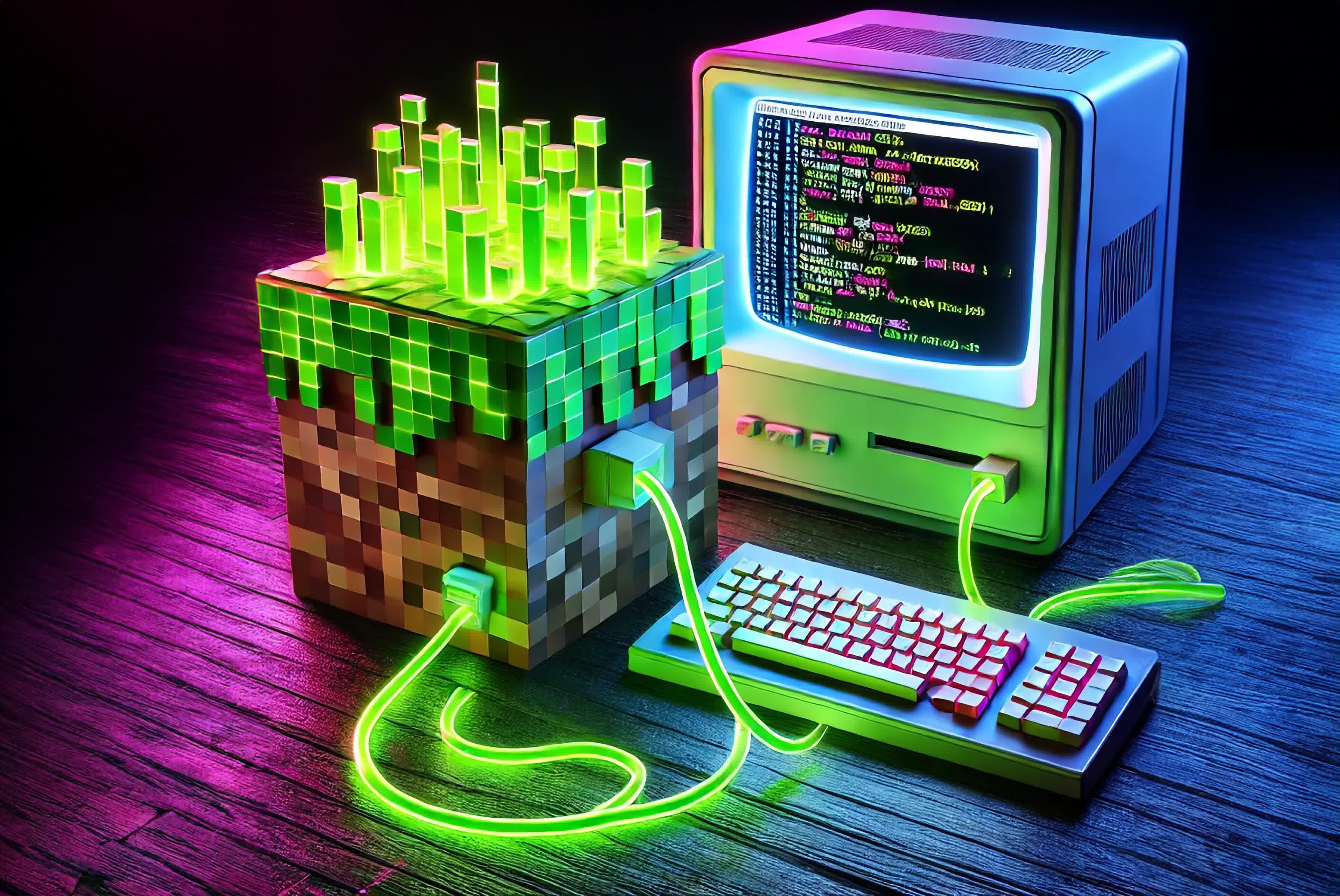Serving tech enthusiasts for over 25 years.
TechSpot means tech analysis and advice you can trust.
TL;DR: Minecraft has long been a platform for impressive feats by modders, from recreating massive structures to running computer systems within the game. Now, a new project takes this creativity to another level by running Minecraft on COBOL, a programming language designed in 1959. While COBOL remains vital today, a shortage of developers proficient in the language has become a significant challenge.
Modder meyfa recently published tools and instructions for running a Minecraft server using COBOL, a programming language created for business IT systems in the 1950s and 60s. Despite COBOL’s enterprise-focused nature and the developer’s lack of prior experience, this alternative version of Minecraft runs smoothly, supporting most of the game’s basic features.
The in-development project, called CobolCraft, doesn’t yet include all Minecraft functionality. However, it does support key features such as infinite terrain generation, saving persistent world data to disk, importing existing worlds, player inventory management, and basic block functionality.
Multiplayer is also supported, with up to 10 players able to join, along with features like chat, server status updates, server configuration options, and whitelisting.
Also read: Face it, there is nothing that can replace COBOL
While CobolCraft will likely never support the most complex multi-state block interactions, simpler items such as torches, slabs, stairs, doors, and beds are fully functional.
The mod is primarily designed for Linux, though a platform-independent version could be made available through Docker. However, the project remains untested on Windows.

Running CobolCraft on Linux requires several tools and dependencies, including cobc, make, g++, zlib, curl, and a recent version of Java. Detailed instructions can be found on the developer’s Docker Hub page.
Perhaps the most striking takeaway from this project is that new developers can still learn COBOL nearly 70 years after its inception. Originally designed for business systems, the language still runs on IT mainframes and handles tons of business transactions today, but finding coders knowledgeable in COBOL is becoming increasingly difficult.
Related reading: Decades-old programming languages Fortran and Cobol are still thriving
Meyfa had no prior experience with COBOL before developing CobolCraft. Moreover, a game like Minecraft is ill-suited to COBOL’s enterprise-oriented design, making this project an especially strenuous exercise in coding skills.
CobolCraft was built using GnuCOBOL, an open-source fork that developers have maintained for over two decades. For those curious, an introductory guide to writing in GnuCOBOL is available here.
Translating Minecraft into an ancient programming language is arguably another of the intriguing accomplishments in the game’s history. Yet, Minecraft has long served as a testing ground for ambitious projects. Modders have previously built a recreation of the original Legend of Zelda, a Google Earth voxel converter, a PC capable of running Doom, and even a simulation of the entire known universe within the game.















